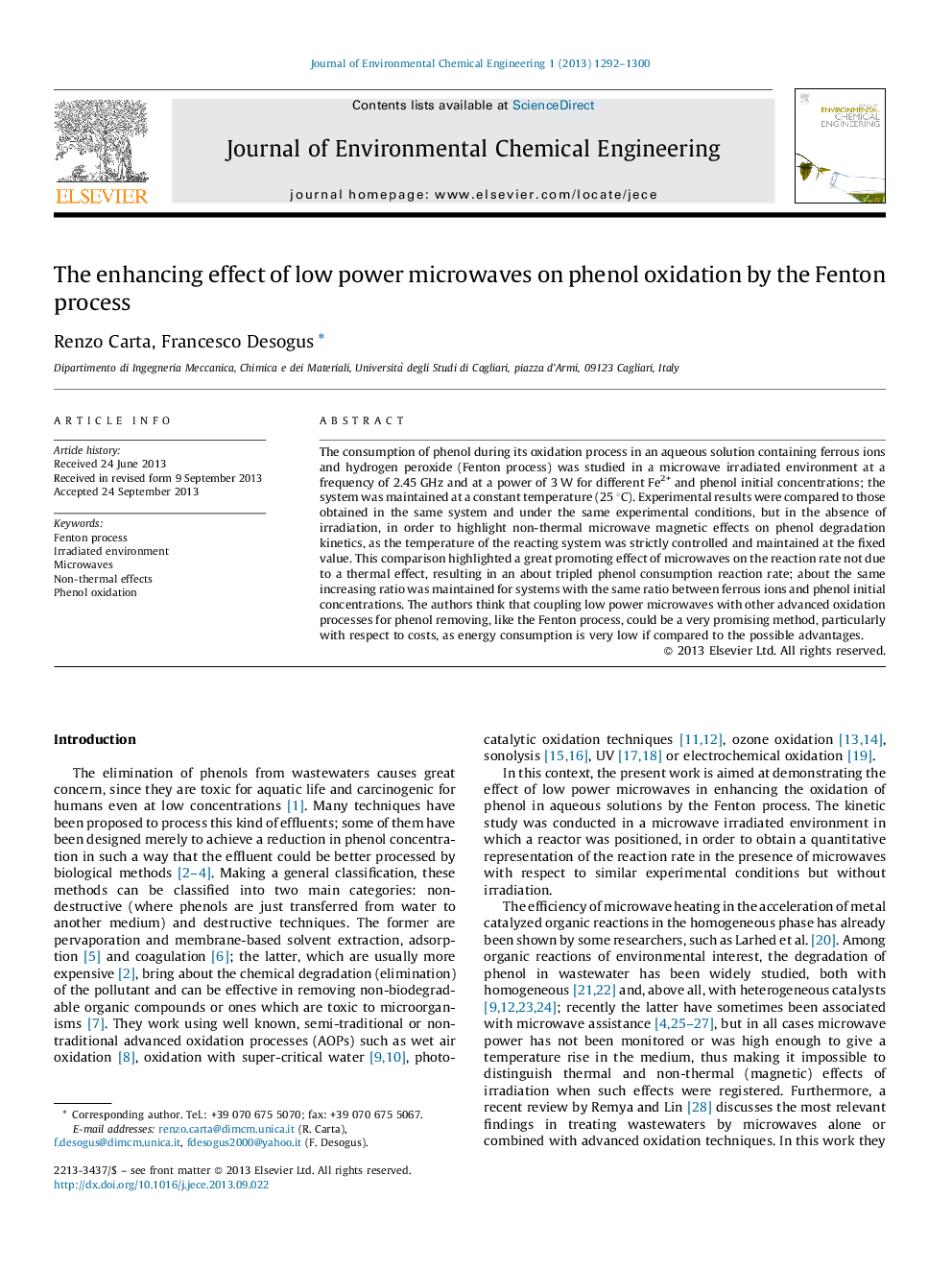| Article ID | Journal | Published Year | Pages | File Type |
|---|---|---|---|---|
| 222533 | Journal of Environmental Chemical Engineering | 2013 | 9 Pages |
•Low power microwaves were applied to phenol degradation by the Fenton process.•The experimental temperature was not affected by the microwave irradiation.•The magnetic field can influence chemical reactions if they are spin selective.•Non-thermal microwave effects on phenol degradation kinetics were found.•Low power microwaves can considerably speed up the phenol degradation process.
The consumption of phenol during its oxidation process in an aqueous solution containing ferrous ions and hydrogen peroxide (Fenton process) was studied in a microwave irradiated environment at a frequency of 2.45 GHz and at a power of 3 W for different Fe2+ and phenol initial concentrations; the system was maintained at a constant temperature (25 °C). Experimental results were compared to those obtained in the same system and under the same experimental conditions, but in the absence of irradiation, in order to highlight non-thermal microwave magnetic effects on phenol degradation kinetics, as the temperature of the reacting system was strictly controlled and maintained at the fixed value. This comparison highlighted a great promoting effect of microwaves on the reaction rate not due to a thermal effect, resulting in an about tripled phenol consumption reaction rate; about the same increasing ratio was maintained for systems with the same ratio between ferrous ions and phenol initial concentrations. The authors think that coupling low power microwaves with other advanced oxidation processes for phenol removing, like the Fenton process, could be a very promising method, particularly with respect to costs, as energy consumption is very low if compared to the possible advantages.
